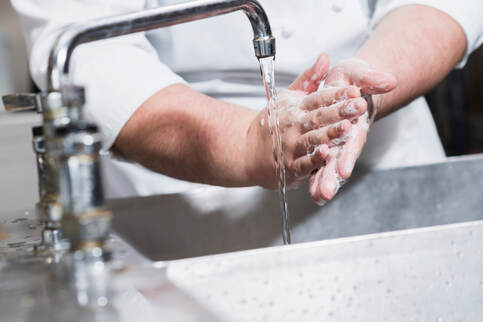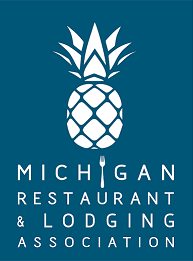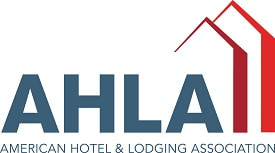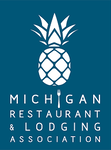Serving Health Wellness During COVID-19 Pandemic
By: Dr. JaeMin Cha, Associate Professor, Dr. Ronald F Cichy, O.M., Professor Emeritus
The School of Hospitality Business. Michigan State University
The School of Hospitality Business. Michigan State University

There are many different reasons why guests select a particular restaurant or lodging business. Whatever the motivation, health wellness is the top priority in the minds of most guests now, more than ever, when selecting a place to eat or stay. Although most guests know that the virus causing COVID-19 is not transmitted through food, the COVID-19 crisis has definitely elevated emphasis on staff proper personal hygiene practices and cleanliness protocols as guests increasingly express COVID-19 concerns.
While there are many various health wellness initiatives, this article primarily highlights one of the most fundamental, namely the importance of health and hygiene, including effective handwashing for both guests and kitchen staff members.
Effective Health and Personal Cleanliness Required for Every Staff Member:
To safely serve food, staff members must practice good health and hygiene habits. Good health and personal cleanliness are important for every staff member of the foodservice and lodging business. Prior to COVID-19, cleaning and sanitizing, as well as hand washing, were prioritized among kitchen staff members. However, all staff must practice good personal hygiene and engage in frequent handwashing. Following the CDC (Centers for Disease Control and Prevention) guidelines is essential! Today guests are looking for reassurance by watching the behaviors of guest contact and kitchen staff members to gain confidence regarding the safety of their own wellbeing.
FDA’s Food Code for hand washing and glove use in foodservice operations have not been changed as a result of the pandemic. According to the Michigan Food Code, staff members “ when otherwise approved, food employees may not contact exposed, ready-to-eat foods with their bare hands and shall use suitable utensils such as deli tissue, spatulas, tongs, single use-gloves or dispensing equipment.” In addition to kitchen staff members, wearing gloves by the all staff members is the new normal in many businesses. However, it is important to remind them that gloves must not be a substitute for proper hand washing.
Utilize Reputable COVID-19 Resources:
The Michigan Restaurant & Lodging Association and the National Restaurant Association are continuously sharing numerous reputable resources as restaurant and lodging operators are dealing with the COVID-19 crisis. The U.S. Food & Drug Administration also highlights best practices for re-opening retail food establishments during the COVID-19 pandemic, in terms of a food safety checklist. Here are essential checklists in areas of hand washing stations and staff health / screening from the FDA resource.
While there are many various health wellness initiatives, this article primarily highlights one of the most fundamental, namely the importance of health and hygiene, including effective handwashing for both guests and kitchen staff members.
Effective Health and Personal Cleanliness Required for Every Staff Member:
To safely serve food, staff members must practice good health and hygiene habits. Good health and personal cleanliness are important for every staff member of the foodservice and lodging business. Prior to COVID-19, cleaning and sanitizing, as well as hand washing, were prioritized among kitchen staff members. However, all staff must practice good personal hygiene and engage in frequent handwashing. Following the CDC (Centers for Disease Control and Prevention) guidelines is essential! Today guests are looking for reassurance by watching the behaviors of guest contact and kitchen staff members to gain confidence regarding the safety of their own wellbeing.
FDA’s Food Code for hand washing and glove use in foodservice operations have not been changed as a result of the pandemic. According to the Michigan Food Code, staff members “ when otherwise approved, food employees may not contact exposed, ready-to-eat foods with their bare hands and shall use suitable utensils such as deli tissue, spatulas, tongs, single use-gloves or dispensing equipment.” In addition to kitchen staff members, wearing gloves by the all staff members is the new normal in many businesses. However, it is important to remind them that gloves must not be a substitute for proper hand washing.
Utilize Reputable COVID-19 Resources:
The Michigan Restaurant & Lodging Association and the National Restaurant Association are continuously sharing numerous reputable resources as restaurant and lodging operators are dealing with the COVID-19 crisis. The U.S. Food & Drug Administration also highlights best practices for re-opening retail food establishments during the COVID-19 pandemic, in terms of a food safety checklist. Here are essential checklists in areas of hand washing stations and staff health / screening from the FDA resource.

Handwashing Stations
Staff Health / Screening
Communication is the Key:
As the COVID-19 pandemic continues to evolve and be better understood by scientists, the restaurant and lodging businesses will need to rapidly change their systems and protocols. During this unprecedented time, guests are increasingly demanding to know how food service and lodging businesses are committed to caring for health wellness of staff members and guests. It is important for operators to proactively communicate to their guests about precautions and actions they are taking to ensure health wellness in the threat of the pandemic.
References:
Centers for Disease Control and Prevention (2020). Implementing Safety Practices for Critical Infrastructure Workers Who May Have Had Exposure to a Person with Suspected or Confirmed COVID-19. Available from https://www.cdc.gov/coronavirus/2019-ncov/downloads/critical-workers-implementing-safety-practices.pdf
Cichy, R.F. and Cha, J. (2019) Food Safety and Quality Management, Third Edition, published
by National Restaurant Association and American Hotel & Lodging Educational Institute.
Michigan Restaurant & Lodging Association (2020). Coronavirus Resources. Available from
https://www.mrla.org/coronavirus.html
National Restaurant Association (2020). Coronavirus Information and Resources. Available from https://restaurant.org/covid19
U.S. Food & Drug Administration (2020). Best Practices for Re-opening Retail Food Establishments during the COVID-19 Pandemic: Food Safety Checklist. Available from https://www.fda.gov/food/food-safety-during-emergencies/best-practices-re-opening-retail-food-establishments-during-covid-19-pandemic
- Have you trained and reminded staff members of effective hand hygiene practices including: washing hands with soap and water for at least 20 seconds, especially after going to the bathroom, before eating, and after blowing their nose, coughing, or sneezing?
- Is there a station at the entrance with hand sanitizer and wipes? Guests are encouraged (by staff demonstrating how) to use them as they enter the room.
- Are all the handwashing sinks accessible and fully stocked (e.g. soap, paper towels, hand wash sign, and trash bins)?
- Are paper towels and trash cans available in the bathrooms so doors can be opened and closed without touching handles directly?
- Are all the handwashing sinks functional and able to reach 100⁰F minimum?
- Have you considered using hand sanitizers (minimum 60 percent alcohol), as appropriate, in multiple locations, to encourage hand hygiene by both customers and staff members to supplement hand washing?
Staff Health / Screening
- Do you have a protocol to check staff health and personal hygiene practices within your business?
- Are you following CDC guidance and practices for staff health checks/screenings?
- Have you checked CDC and local regulatory/health authority guidance for staff returning to work?
- Is there a plan to monitor and respond to a higher than normal level of absenteeism?
- Is there a plan or policy for, and an adequate supply of, personal protective equipment (PPE) and/or cloth face coverings? Cloth face coverings should only be used if PPE is not required, and changed as needed if worn.
Communication is the Key:
As the COVID-19 pandemic continues to evolve and be better understood by scientists, the restaurant and lodging businesses will need to rapidly change their systems and protocols. During this unprecedented time, guests are increasingly demanding to know how food service and lodging businesses are committed to caring for health wellness of staff members and guests. It is important for operators to proactively communicate to their guests about precautions and actions they are taking to ensure health wellness in the threat of the pandemic.
References:
Centers for Disease Control and Prevention (2020). Implementing Safety Practices for Critical Infrastructure Workers Who May Have Had Exposure to a Person with Suspected or Confirmed COVID-19. Available from https://www.cdc.gov/coronavirus/2019-ncov/downloads/critical-workers-implementing-safety-practices.pdf
Cichy, R.F. and Cha, J. (2019) Food Safety and Quality Management, Third Edition, published
by National Restaurant Association and American Hotel & Lodging Educational Institute.
Michigan Restaurant & Lodging Association (2020). Coronavirus Resources. Available from
https://www.mrla.org/coronavirus.html
National Restaurant Association (2020). Coronavirus Information and Resources. Available from https://restaurant.org/covid19
U.S. Food & Drug Administration (2020). Best Practices for Re-opening Retail Food Establishments during the COVID-19 Pandemic: Food Safety Checklist. Available from https://www.fda.gov/food/food-safety-during-emergencies/best-practices-re-opening-retail-food-establishments-during-covid-19-pandemic




